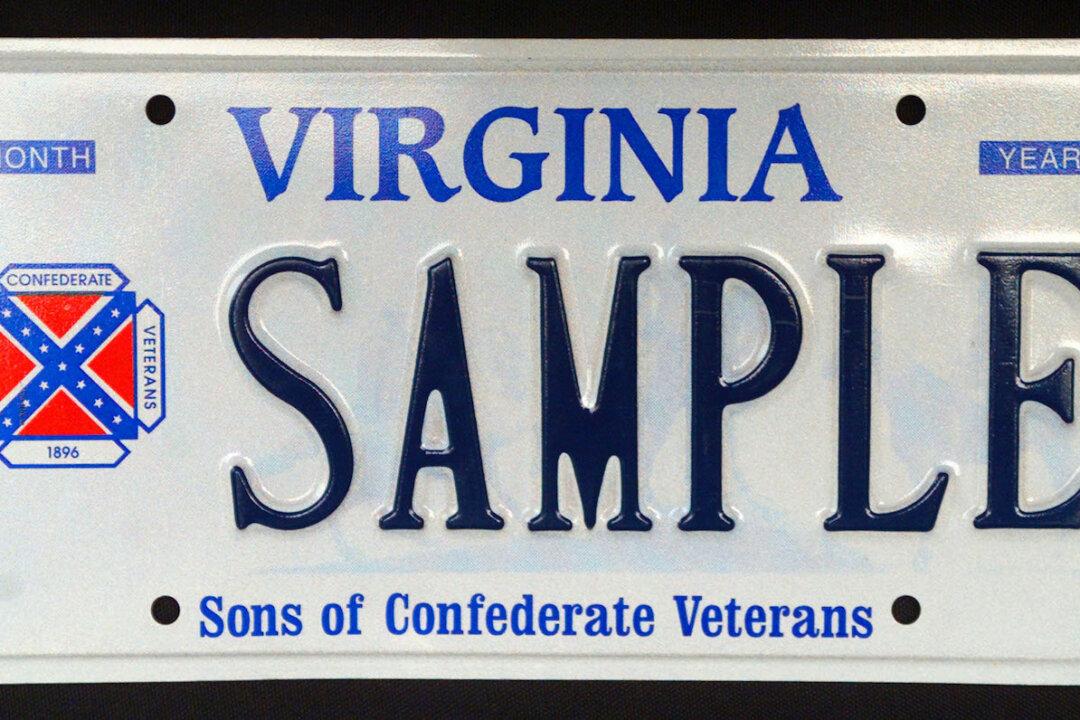The Supreme Court on June 12 decided it wouldn’t consider an appeal seeking reinstatement of North Carolina’s specialty license plates that display a version of the Confederate battle flag.
The case comes in an era in which Confederate symbols, which had previously been viewed as innocent commemorations of the past but are now seen by many as sympathetic to so-called white privilege and the system of slavery the Civil War overthrew, are being removed from the public square.





